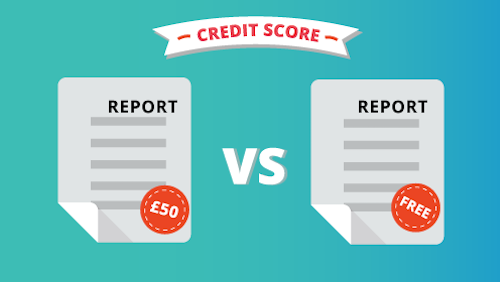Your read progress
Should I Pay for a Credit Check?
4 minute read
Updated 17th September 2025 | Published 30th June 2016

When did you last check your credit report? Maybe you can’t bear to look at it because it reminds you of your past mistakes or perhaps you’re planning to take a peek at it soon because you’re hoping to get on the property ladder?
Whatever your financial history or current position, keeping track of the credit information lenders have on file for you isn’t just important when you want to improve your credit rating; it’s also a matter of financial security. The Annual Fraud Indicator, recently published by Portsmouth University put the cost of identity fraud at £5.4 billion in the UK last year with an estimated 3.5 million victims.
Keeping a regular check on your credit record can help you to identify instances of fraud along with errors that could impact on your perceived credit worthiness. With statutory credit reports available for £2 a time Under the Data Protection Act 1998 and some firms offering access to reports for free, is it time you got more acquainted with your credit report?
What am I paying for?
If you decide to purchase a statutory credit report for which you should pay a maximum of £2 you will receive the information that agency holds on you. Companies such as Noddle and Clearscore don’t charge for the report, instead their business model relies on suggesting financial product matches for you based on your report and in the case of Noddle the option to sign up for their annual fee paid improve service.
Other firms such as Experian, checkmyfile, mycreditmonitor and Equifax will sell you a report for the fixed fee of £2 or offer you free access via a trial of their monthly service. These services vary but along with unlimited access to your report they generally include features such as a notification/warning services via email, telephone or SMS when new information is added to your report and a credit score to give you a quantifiable measure to show you how your credit report compares to others. You may also get access to hints and tips to help you improve your score should you be aiming for a specific credit goal such as taking out a credit card or applying for a mortgage. And, there’s also customer support to help you understand your report and its implications.
Taking a 30-day free trial can be a good way to gain insights into how you can improve your credit rating if that’s your goal. However, if you don’t want to carry on paying what usually amounts to between £8.99 and £15 per month, it’s crucial that you’re clear on how and when you need to cancel your account.
It’s also worth noting that using a subscribe service won’t necessarily keep your experience free of advertising as many of the paid providers still offer a credit matching service. That said, if you’re actively looking for a particular financial product you may find such services helpful to use alongside other sources such as the reviews from customers here at Smart Money People.
Our blog post Which credit report is best? is also worth a read as it explores the similarities and differences between the different credit report providers on the market . Along with cost and outlining of each business model it considers other important factors such as ease of use for company’s websites and accuracy of information held.
Getting the full picture
It’s important to realise that a statutory credit report represents a current snapshot of your credit profile and that this snapshot may differ slightly depending on where the report is sourced. Our own basic testing of the big providers confirmed there can be discrepancies and on the whole, some of the paid for reports in this instance proved a little more reliable. Another factor that helps to explain differences is the fact the main credit reference agencies who are consulted for these reports – Experian, Callcredit and Equifax all work with different lenders. To gain the fullest picture you could order reports from multiple providers who use different agencies. Checkmyfile uses information from all three in their reports.
Technically speaking, there’s no need to pay for a monthly credit check service unless you’d like to access the features that are part and parcel of the package on an on-going basis. For many people a free 30 day trial is all that is required to kick start the process of getting their credit profile in order, followed perhaps by regular check-ins with statutory reports to ensure there’s nothing unexpected showing. If after a free trial with one of the big providers you decide you’d like to access some but not all of the features of their package, you may find they are willing to offer you those particular services for a reduced fee in order to retain your custom. Don’t be shy to ask for exactly what you want!
Get started now by comparing how real customers rated credit report and credit checking by checking out our top-rated credit check companies.
Written by Smart Money People Team
As Featured By
Join our mission
We use the power of consumer reviews to help increase trust and transparency in financial services and to deliver industry leading insight and events.
Write a reviewExplore our other topics

News: Awards

News: Industry news

News: Smart Money People news

Guides: Smart money guides

Guides: Smart money tips

Guides: Business guides

Blogs: Money choices

